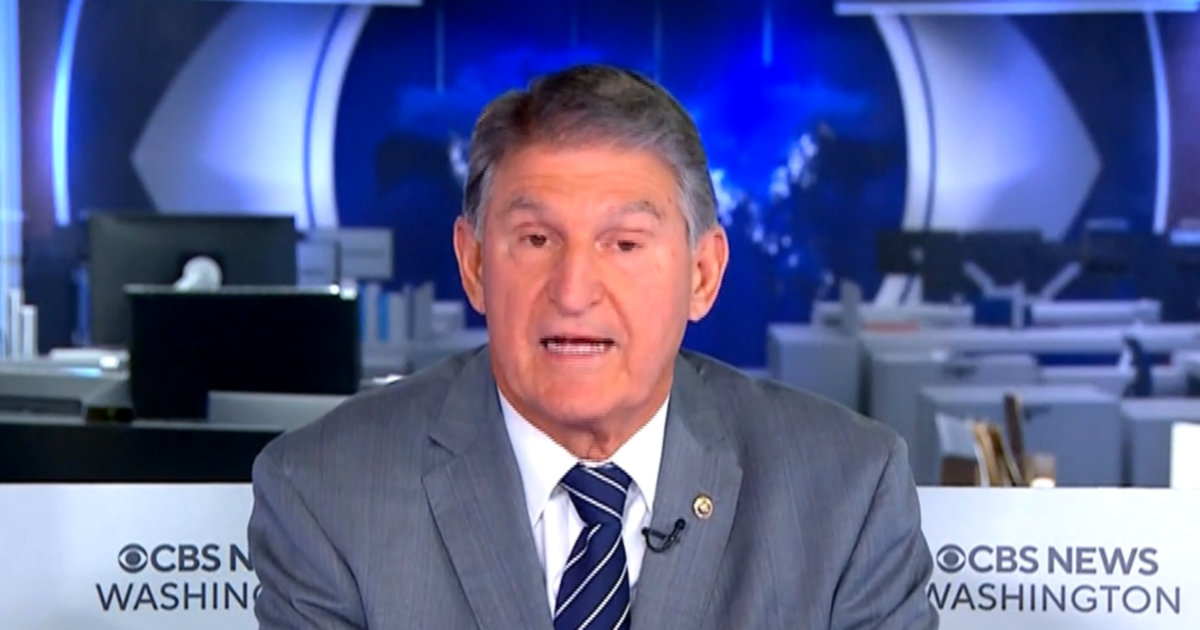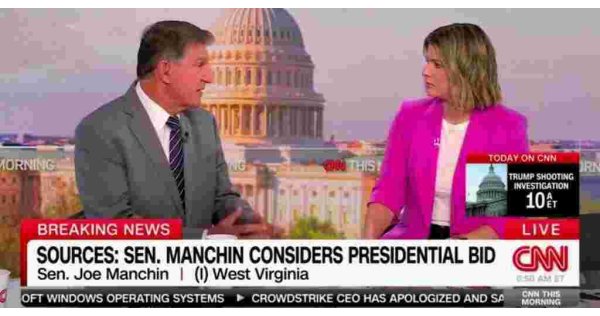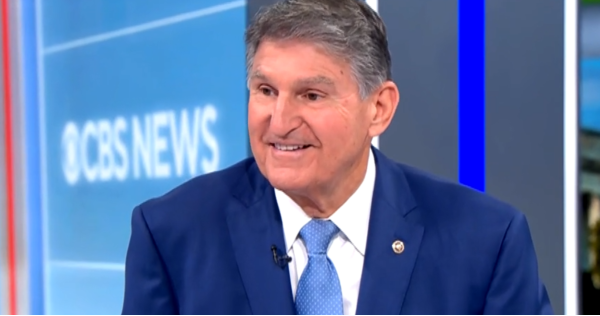Sen. Joe Manchin, the longtime West Virginia Democrat-turned-independent, has announced that he won't be throwing his hat into the ring for the upcoming presidential election. During an appearance on "CBS Mornings" on Monday, Manchin stated, "I am not going to be a candidate for president."
With President Biden's recent decision to step down, the senator called for Democrats to hold a "mini primary" to identify their strongest candidate. However, he acknowledged that the process seems to be moving towards a predetermined outcome with Vice President Kamala Harris gaining the support of many Democrats.
While Harris has yet to secure the backing of key party leaders like Chuck Schumer and Hakeem Jeffries, she could still be nominated as the Democratic candidate as early as August 1 during the Democrats' virtual roll-call vote. Manchin suggested that Harris may be too far left for his liking but expressed a willingness to see if she shifts her stance.
The senator, who is not seeking reelection to the Senate, has been critical of former President Donald Trump despite his popularity in West Virginia. He refuted any notion that he is attempting to sway the election in Trump's favor. Instead, Manchin emphasized that his public statements reflect his commitment to representing the views of moderate Americans.
Manchin also took the opportunity to commend President Biden, with whom he served in the Senate, for his decision-making abilities. Nonetheless, Manchin proposed a six-year term for presidents instead of the current four-year term, eliminating the need for reelection campaigns.
Sen. Joe Manchin says he won't run for president but calls for Democratic "mini primary" now that Biden's out
Sen. Joe Manchin, a longtime Democrat-turned-independent, told "CBS Mornings" he won't be running for president.



